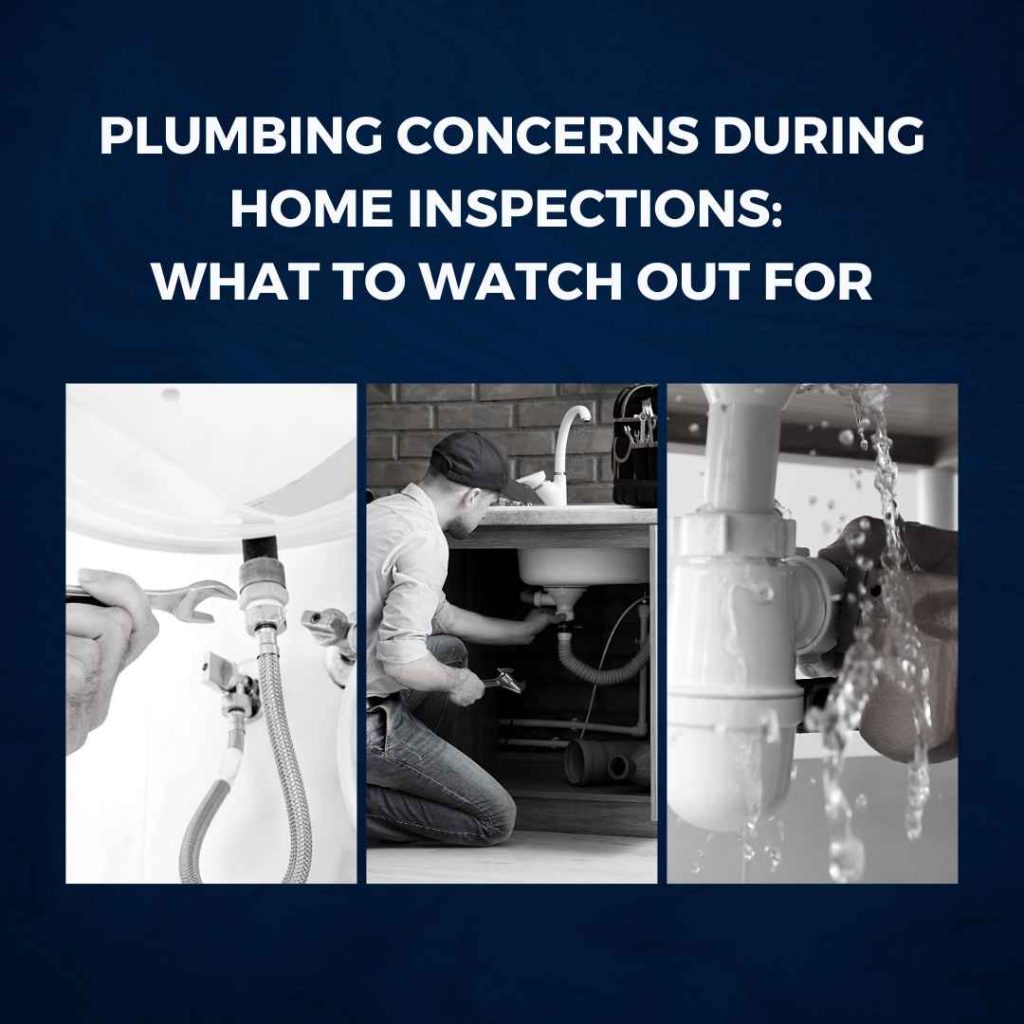For many prospective homeowners, the thought of purchasing a new home is both exciting and daunting. Among the myriad of considerations to take into account, the home’s plumbing system ranks high on the list. A compromised plumbing system can lead to costly repairs and significant inconveniences. Therefore, understanding common plumbing concerns during home inspections is essential to ensure you make an informed purchase.
- Old and Corroded Pipes
The age of a home often dictates the type of piping material used. For homes built before the 1970s, galvanized steel or even lead pipes were commonly used. These materials are susceptible to corrosion over time. Corroded pipes can lead to water discoloration, reduced water pressure, and leaks. If a home inspection reveals such old pipes, you may need to consider the costs of replacement.
- Leaks
Leaks, whether big or small, can lead to significant water damage over time. Signs of leaks might include water stains on walls, ceilings, or floors. Additionally, a musty smell might indicate a hidden leak causing mold or mildew growth. Leaky faucets, showerheads, or visible pipes should also be addressed.
- Water Heater Issues
The water heater is an essential component of a home’s plumbing system. During an inspection, the age, capacity, and condition of the water heater are examined. Signs of rust, improper installation, or lack of regular maintenance might indicate potential problems. Also, check if the water heater is sized appropriately for the house. An undersized unit may not meet the demands of a large family.
- Poor Water Pressure
Low water pressure can be a symptom of various issues, such as blocked pipes, leaks, or faulty fixtures. During the home inspection, ensure that water flows freely from all faucets and showers. If there’s an inconsistency in pressure, it might hint at a larger issue within the plumbing system.
- Drainage Issues
Slow or blocked drains can indicate problems in the sewage system. During the inspection, water should be run in sinks, bathtubs, and showers to check the drainage speed. Gurgling noises or water backing up could suggest blockages or issues with venting.
- Sewer System and Septic Tanks
For homes not connected to a municipal sewer system, the condition of the septic tank becomes crucial. An overflowing or damaged septic system can be expensive to repair and pose health risks. Ensure the inspection covers the septic tank, checking for signs of leaks, odors, or a soggy drain field.
- Faulty Fixtures
While often overlooked, fixtures like faucets, showerheads, and toilets play a pivotal role in a home’s plumbing functionality. During the inspection, ensure these fixtures operate correctly without any leaks. A running toilet, for instance, can waste a significant amount of water and increase utility bills.
- Water Quality
Although not directly a plumbing issue, the quality of water running through the pipes is essential. Signs of hard water include white build-ups on faucets or poor soap lathering. In such cases, a water softener system might be necessary. Water testing can also reveal contaminants that may necessitate a filtration system.
- Inadequate Insulation
In colder climates, plumbing pipes should be adequately insulated to prevent freezing. Frozen pipes can burst, leading to significant water damage. An inspection should ensure that exposed pipes, especially in basements or attics, are well-insulated.
- History of Repairs
Lastly, ask about the history of plumbing repairs in the house. Frequent repairs might indicate a problematic system or DIY fixes that could be more harmful than beneficial.
In conclusion, the plumbing system of a house is its lifeline, ensuring smooth water flow and waste disposal. As a prospective homeowner, understanding potential plumbing concerns can save you from unforeseen expenses and hassles down the line. Always employ a trusted home inspector who can identify these issues and provide a comprehensive report, allowing you to make a well-informed decision on your purchase.

